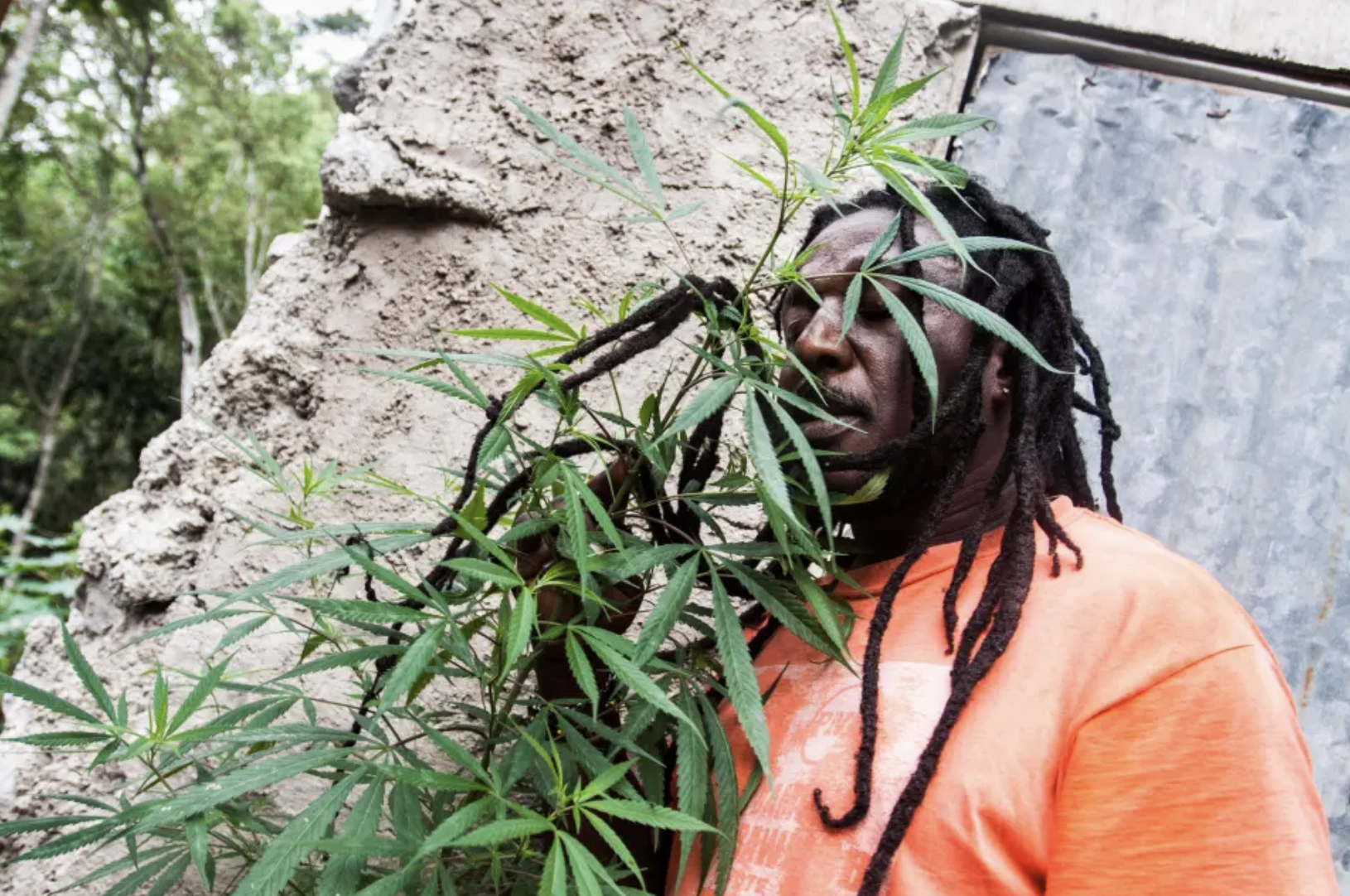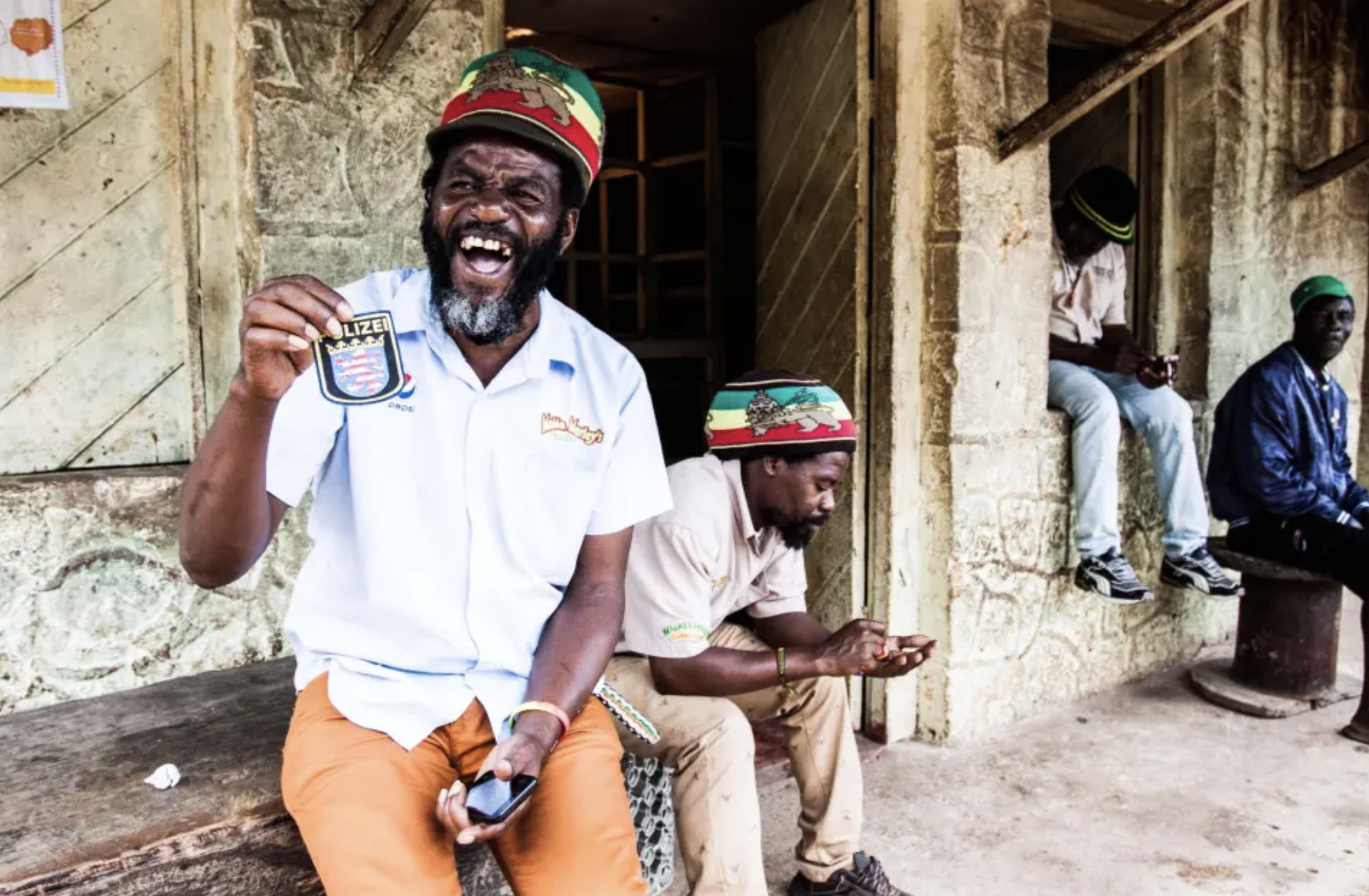Cannabis as Sacrament
Credit - media drum world
A rastafarian context
Bob Marley has become a massive icon for Jamaican music and culture all over the world. In particular, he’s often pictured with what Jamaicans call a spliff. This iconography has become synonymous with the country on an international stage; which presents an immense opportunity.
Back in 2015, Jamaica, after years of grueling debate, decriminalized marijuana in small amounts. Persons who would have ordinarily accrued a criminal record after being caught with a spliff were now able to walk freely. Small possession was downgraded to a petty offense, and individuals were allowed to grow at least five plants in their yard. Fast forward to today and the island has several dispensaries and farms operating in a legal market. The Cannabis Licensing Authority is one of the main bodies regulating this new cannabis regime in Jamaica.
Along with these changes in the dangerous drug act regarding marijuana, the Rastafari people of Jamaica were also granted sacramental rights. The revision of the act is far from perfect and its many holes have inspired a variety of criticisms. The barrier to operate in this new legal industry is governed by the CLA and requires some significant fees to begin with.
The Rastas for instance, are granted sacramental rights however, they are not allowed to grow or sell. This is not only injustice, but it’s also wasting an immense opportunity. According to Dr Machel Emanuel of the Life Sciences Department of the University of West indies, Mona- it’s an opportunity that Jamaica has seized before in the 1940s, “Leonard Percival Howell set up the first Rastafari commune in the western hemisphere where ganja was the cash crop. It sustained a very large population and cannabis from Pinnacle was said to be exported to Winston Churchill in england. It’s also said that cannabis from Jamaica was used by the queen of England for her period pains.”
Credit - media drum world
What could be more powerful than an economic opportunity built on this powerful Rasta imagery? Imagine a global rasta cannabis brand and the potential of a business like that in this day and age. “You now have an opportunity to market this commodity under a different connotation than what the world is marketing it as. Which is medical or recreational. We now have the opportunity to market this product based on moral and ethical values. Meaning, who is cultivating, how is it cultivated, what sort of inputs are being used, is it sun grown? So you’re creating a product that aligns with the moral and spiritual practices of the rastafari lifestyle.”
Not only are we living in a time where more and more people want to know the source of their products and services are ethical and eco friendly; people are also interested in ethically sourced cannabis. Cannabis like food is a nourishment, albeit mental or spiritual depending on who you ask. As a result, it’s only fair that users take an interest in where this essential nourishment is coming from. This type of curiosity and commitment to ethics and values is a key feature of the modern cannabis user.
For the rastafari people though, these practices regarding quality assurance have long since been tradition. In fact, for many rastas cannabis is a part of their initiation into the faith. “Sacrament now would come from the word sacred which would mean that we are talking about God and connecting to source and the higher part of yourself. For rastafari primarily it is that.” says Kareece Campbell. Campbell is a wellness event producer and consultant at the Rastafari Indigenous village in Montego Bay Jamaica where she spends a great deal of time with the community there.
“When I reason with some of the Incients(elders), they showed me that it only became a thing to sell because they were ostracized from the world and had no other means of making money. They didn’t have that many things they could do to feed their family.” says Campbell. Many others including her feel that given this troubling history of oppression, Rastas are being sidelined in favor of a dispensary based industry that treats the plant like a drug. As this new cannabis industry saga continues to unfold and holes in the act start to get filled, the question about Rasta’s place in the industry remains.
Depending on how much you know Bob Marley you may or may not know that his favorite strain of Cannabis was lamb’s bread. A strain that is said to have been wiped out on the island, with the invasion of non equatorial cannabis plants that have a shorter budding period. Though lamb’s bread and other of its ilk require a longer time to produce, it was a most popular strain among the rastas leading to its name. The savior of the Rastafari faith is Haile Selassie, an emperor of Ethiopia who was symbolized, like Christ as the lamb. But a great deal of the name also comes from the reverence the rastas held for the plant when growing and selling it. A reverence that translated into a product of superior quality. There are those who believe that strains of it still exist in hidden pockets of the island.
Cannabis for the Rastafari people is more than just recreation, it’s a part of their faith and used as a muse for meditation on their creator. It’s not a plant they worship, but because it is a part of their spiritual work, they treat it with a type of care that cannot be replicated. A care that was bred through generations of horticultural tradition passed down in families. A care that you just can’t get from recreational or medicinal marijuana.



